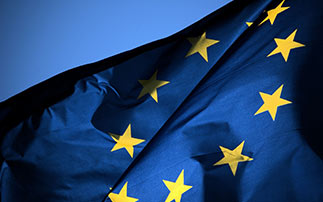
25 August 2021
+33(0)1 42 54 60 64 | contact@welcomeurope.com
To promote democracy and human rights worldwide through support to civil society initiatives at country level and to a number of global strategic interventions
Armenia
Objectives
* Lot 1: Support human rights organisations and other civil society actors in joint monitoring of and reporting on the implementation of justice sector reform and police reform with a view to increase public awareness & debate and to improve service delivery and access to justice for citizens;
* Lot 2: Support human rights organisations and other civil society actors in joint actions to further strengthen social and labour rights protection, raising awareness of international and European labour standards and monitoring the implementation of social protection issues and labour rights reform in Armenia with a view to increase public awareness and debate and to improve social protection and labour rights protection;
* Lot 3: Support civil society organisations in establishing meaningful, structured platforms that engage citizens and civil society actors in effective dialogue with government and increase their influence at all stages of policy cycle
Priorities
* Rights-Based Approach;
* Dnsure the inclusion, participation of and providing a voice to youth, people or groups in a vulnerable situation, minorities, people with disabilities, victims of domestic violence, poor, elderly, homeless people etc. and particularly to those facing such situations in the Marzes;
* Increase awareness of COVID-19 impacts and consequences for Armenian society including new, additional needs and social protection and labour rights –social and economic rights- concerns arising from the global health crisis;
* Increase awareness of environmental and climate-change related topics of relevance to the beneficiaries, workplaces, a sector and promote recommended practices (technical and behavioural) in line with EU and international recommendations such as the EU Green Deal;seek complementarity and create synergies with actions undertaken through other programmes financed by the European Union or other development partners in Armenia;
* Promote user-driven and innovative dialogue platform solutions;
* Invest in sustainable dialogue platform solutions and policy engagement results
Among financed actions
* Lot 1:
– Baseline surveys on access to justice or other key issues related to justice sector and police reform including the impact of COVID-19 on rights holders, human rights protection, the justice sector and police force and how to better prepare for future emergency situations;
– Court monitoring;
– Mapping of access to justice mechanism and monitor their effectiveness (if no other monitoring is conducted);
– Documenting and reporting on justice reform implementation;
– Carry-out capacity-building and training activities;
– Launch call(s) for proposals and provision of financial assistance to civic groups active in the areas of human rights and access to justice advocacy and monitoring, justice sector and police reform advocacy and monitoring and/or public accountability;
– Organisation of awareness-raising sessions, public discussions, information sessions, campaigns, training of journalists, and production of online and traditional radio and TV programmes etc.;
– Organisation of visits and discussions with experts, relevant National Assembly committees members and multi-stakeholder fora;
– Review and development of curricula, training manuals and self-assessment tools and conduct trainings as requested and considered valuable;
– Provision of support to concrete advocacy, networking and monitoring activities in particular to ensure oversight of Justice Sector budgets;
– Organise competitions, award prizes and other types of incentives and support to researchers and/or independent investigative journalists
* Lot 2:
– Conduct and publish baseline surveys, perception studies and other data gathering on key topics related to labour rights;
– Document, report on and provide consolidated advise on COVID-19 impacts on social protection and labour reform implementation;
– Promote and raise awareness of international and European labour standards incl. ILO Conventions, the UN Guiding Principles on Human Rights and Business;
– Explore cooperation with other stakeholders including trade unions and employers potential joint priority actions on specific topics;
– Map and monitor (not inspect) the most common labour rights violations, identify best practices of addressing them and explore (also potential future) support options;
– Raise awareness of inclusive and respectful work place practices incl. anti-harassment to be promoted by managers;
– Work on identifying best practices at Armenian work places to foster a good and respectful working environment and identify champions among Armenian employers;
– Engage with faculties, departments, teaching staff, students and recent graduates international and European labour standards incl. ILO Conventions, the UN Guiding Principles on Human Rights and Business to raise their awareness of labour rights issues, the role of management, and remedies/actions to pursue in unfavourable situations/employment offers;
– Identify activities to help promote labour rights in the Armenian labour market incl. documentation, raising public awareness and assist at-risk groups and individuals;
– Launch call(s) for proposals and provision of financial assistance to actors that have an interest and potential role in promoting labour rights, Corporate Social Responsibility, conduct cost-benefit studies and other initiatives that can further document, raise awareness of and improve labour standards in Armenia;
– Organisation of awareness-raising sessions, public discussions, information sessions, campaigns, training of journalists and production of online and traditional radio and TV programmes etc.;
– Organisation of visits and discussions with experts, relevant National Assembly committees members and multi-stakeholder fora;
– Review and development of curricula, training manuals and self-assessment tools and conduct trainings as requested and considered valuable
* Lot 3:
– Assess existing formal/structures policy dialogue platforms such as Public Councils adjacent to Ministries, National Assembly hearings, identify gaps and shortcoming and explore improvements of these and potential new types of structured dialogues;
– Map and document existing materials and guidance developed on formal and informal Armenian policy-making processes, institutions and actors, implementation of policies and access to information as well as key entry points for policy influence;
– Organise discussions to review materials and seek to make the materials adapted to, useful for and directly applicable for various civil society organisations, civic groups and initiatives at main policy levels;
– Work with CSOs and stakeholders to identify of critical policy stages and the engagement mechanisms that are most appropriate for each stage;Promote evidence-based policy-making by creating more awareness and knowledge of which type of evidence is relevant for which purposes and how to gather evidence/data that is reliable and valid;
– Document and share examples of past and concurrent examples of both successful and unsuccessful civil society policy engagements for public campaigns with a view to enhance transparency and public awareness of civil society actions with a view to improve CSO legitimacy and credibility with policymakers;
– Explore and test new means for Armenian CSOS to improve communication on their policy engagement, including promotion of existing and new tools for packaging and targeting information to make it more accessible, digestible and timely for key policy makers, specific type of policy discussions, the public, their constituencies and the media;
– Promote networking, joint actions and consensus building; assist civic actors and groups in gathering and disseminating evidence and explore how to mobilise resources for evidence-based policy-engagement;
– Explore, study and identify policy-maker expectations, needs and interests in engaging with CSOs and civic actors in formal and informal policy processes at local, Marz and national levels;
– Provide direct support to organise dialogues, meetings, presentations and consultations ahead of and after formal meetings such as Public Councils meetings, National Assembly hearings as well as local government meetings and informal consultations at all levels in order to enhance transparency, information flows and collaborations between CSOs and/or other civic actors;
– Review and development of curricula, training manuals and self-assessment tools and conduct trainings, mentoring/coaching and mock actions for CSOs, civic actors, students and pupils and other stakeholders as requested and considered valuable;
– Development of materials for policy advocacy – policy briefs, infographics, campaigns and media engagements etc.
Additional information
* This call for proposals is a restricted call for proposals. In the first instance, only concept notes will be evaluated
* Initial duration of the action:
– Lot 1 and 2: between 24 and 48 months
– Lot 3: between 24 and 36 months
* Eligibility:
– Be a legal person;
– Be non-profit-making;
– Non-governmental organisation with a human rights mandate or documented experience with implementing rights-based interventions;
– Be established in Armenia;
– Be directly responsible for the preparation and management of the action with the co-applicant(s) and affiliated entity(ies), not acting as an intermediary
* Actions must take place in the following country(ies)/regions: Armenia. Some targeted interventions can take place in the EaP region or in EU member states
* Indicative budget per lot:
– Lot 1: 800,000 euros
– Lot 2: 400,000 euros
– Lot 3: 400,000 euros
* Grant amount:
– Lot 1: between 400,000 and 800,000 euros
– Lot 2: between 300,000 and 400,000 euros
– Lot 3: between 300,000 and 400,000 euros
* Co-financing rate: between 50% and 90% of the total eligible costs

25 August 2021
